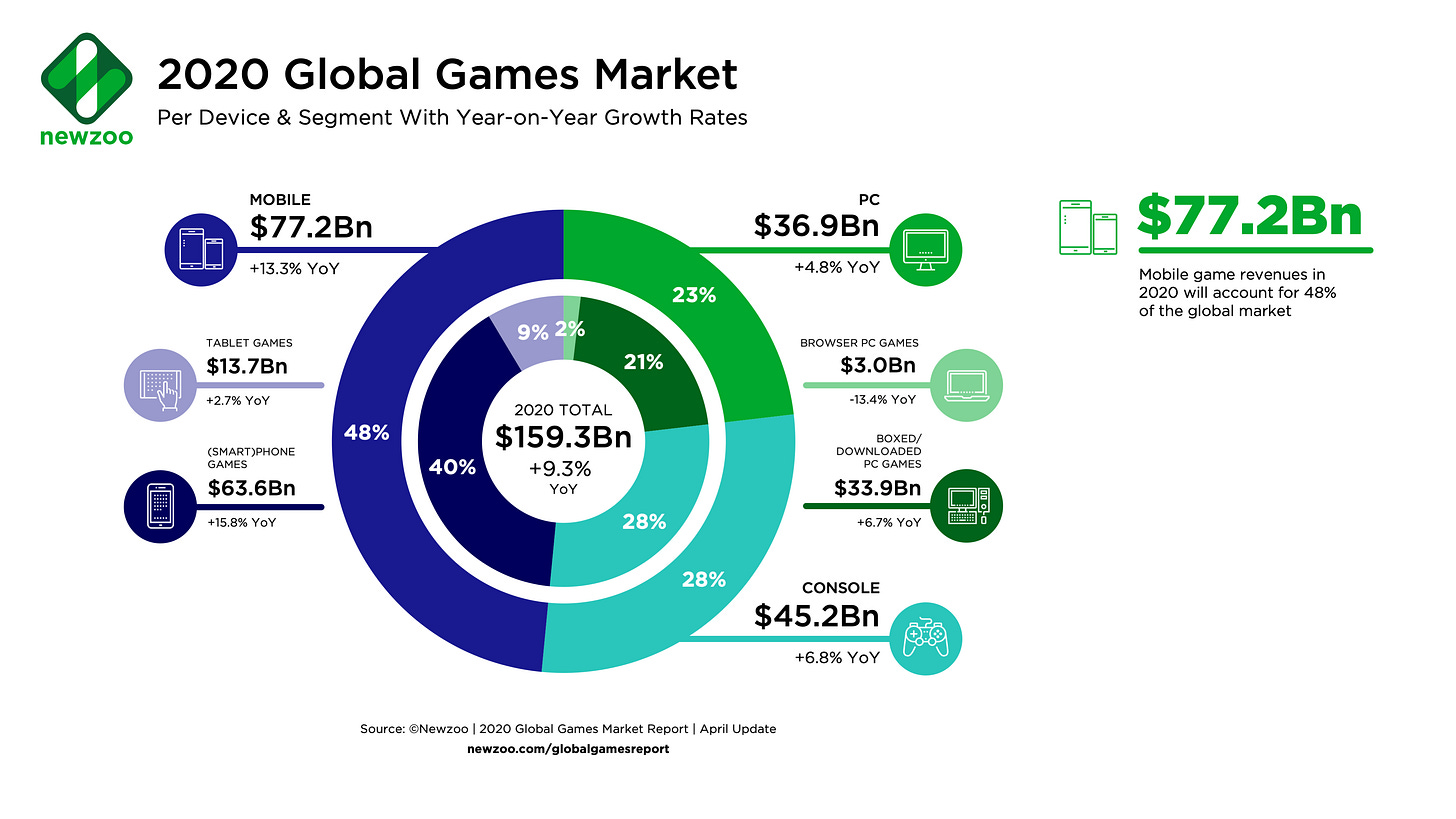Here’s your weekly wrap of technology, innovation, and finance news.
? Cybersecurity
WIRED wrote a fascinating story about the hacker who stopped the 2017 WannaCry ransomware attack, @MalwareTechBlog AKA Marcus Hutchins, and how his past caught up with him.
This is something I’ve wanted to do for a long time. I felt it better to share the full unadulterated story, and let people make up their own minds. It meant discussing a lot of uncomfortable facts about my past, but I want the story not to be some airbrushed half-truth.
— MalwareTech (@MalwareTechBlog) May 12, 2020
A hacker ran a botnet of over 10,000 bots for almost eight years for the sole purpose of downloading anime videos.
Zoom acquired Keybase to help it build large scale end-to-end encryption into its video calls.
We believe this will provide equivalent or better security than existing consumer end-to-end encrypted messaging platforms, but with the video quality and scale that has made Zoom the choice of over 300 million daily meeting participants, including those at some of the world’s largest enterprises.
? Robotics and Drones
Skylark Labs, a US startup, is testing drones in India to enforce social distancing.
Each drone is fitted with a camera and an AI that can detect humans within a range of 150 metres to 1 kilometre. If it spots people it can send an alert to police in the district located nearest to the sighting.
The system can also calculate the physical distance between two or more individuals and let the police know if people get too close to each other. The police can then go to the location and issue a fine if they see people breaching the rules.
Spot robots have been roaming Singapore parks to enforce social distancing.
The Spot robot will broadcast a recorded message reminding park visitors to observe safe distancing measures.
It is fitted with cameras, enabled by GovTech-developed video analytics, to help it estimate the number of visitors in the parks.
? Health
A preprint paper that has not been peer-reviewed claims that young blood plasma can reverse the age of rats by 54%. Harvard professor and lifespan researcher David Sinclair wrote a Twitter thread discussing whether the results are believable.
Expect a rush to India to get this treatment. I do hope Nugenics conduct careful human clinical trials first. In the US, young plasma treatments were stopped by the FDA until further notice citing a lack of proven safety. 21/n
— David Sinclair, PhD (@davidasinclair) May 11, 2020
New research shows that gene therapy can help mice quickly build muscle while losing fat, even when they are on an extremely high-fat diet. Further studies are required to determine if it’s safe for mice over the longer-term.
With the paper’s first author, Ruhang Tang, Ph.D., a senior scientist in Guilak’s laboratory, Guilak and his research team gave 8-week-old mice a single injection each of a virus carrying a gene called follistatin. The gene works to block the activity of a protein in muscle that keeps muscle growth in check. This enabled the mice to gain significant muscle mass without exercising more than usual.
Even without additional exercise, and while continuing to eat a high-fat diet, the muscle mass of these “super mice” more than doubled, and their strength nearly doubled, too. The mice also had less cartilage damage related to osteoarthritis, lower numbers of inflammatory cells and proteins in their joints, fewer metabolic problems, and healthier hearts and blood vessels than littermates that did not receive the gene therapy. The mice also were significantly less sensitive to pain.
?️ Ecommerce
Selling online via live-streaming is taking off in China thanks to the pandemic.
But the pressure of the crisis—and the unique scale of China’s consumer base—provided the necessary catalyst. Taobao now has over 50,000 rural live-streamers and aims for at least 200,000 more within the year. Growers who had once sold 90% of their products offline have now flipped to selling 90% online. Live-streaming has not only helped the industry weather the crisis—it’s forged an entirely new way of business that is likely to continue long after the pandemic is over.
CNBC highlights the rise of Instacart and online grocery delivery.
? Finance
Slice has raised $43 million to help pizzerias go online by providing tech infrastructure, payment systems, customer service, marketing, and a unified app.
“Because of COVID-19, the restaurant landscape is rapidly evolving,” a Slice spokesperson told VentureBeat. “Local pizzerias with delivery are seeing 3 times the orders than pickup-only shops. We’re looking to roll this [Slice Delivery] out broadly in the very near future.”
Waymo raised an additional $750 million, increasing its March funding round from $2.25 billion to $3 billion. New investors include T. Rowe Price Associates, Perry Creek Capital, and Fidelity Management and Research company.
In a blog post, Waymo said the extended funding will too be invested into its workforce and building out its Waymo One ride-hailing service and Waymo Via cargo and goods logistics service.
? Gaming
Newzoo believes that revenue from the 2020 global games market will grow 9.3% to $159.3 billion.
Niko Partners believes the PC and mobile games revenue in China will grow from $33.1 billion in 2019 to $46.7 billion in 2024 (+41%, or 7% per year).
Animal Crossing on the Switch sold 13.4 million copies in its first six weeks in major markets, making it the most successful Switch game launch to date.
Fortnite surpasses 350 million registered players. In April, those players spent 3.2 billion hours in the game.
? Chips and Computing
TSMC, the most advanced semiconductor manufacturer in the world, is being urged to set up a US plant as the US government becomes concerned about reliance on Taiwan. TSMC has said they’re actively evaluating suitable locations, but currently have no concrete plans.
“Taiwan, in particular, represents a single point-of-failure for most of the United States’ largest, most important technology companies,” said the report, written by Rick Switzer, who served as a senior foreign-policy adviser to an Air Force unit. He concluded that the U.S. needs to strengthen its industrial policies to address the situation.
? Artificial Intelligence
The Australian Air Force is trialling AI to assist with search and rescue operations with a model trained to recognise life rafts amid waves and whitewash.
[The Air Force using AI cameras] can cover so much more area than we can, in a very short space of time, so for us, for them to locate and then be able give us coordinates to it, it saves us hours and hours of searching.
Google launched Read Along, an Android app that uses AI to help children learn to read by providing verbal and visual feedback.
⚡ Other Snippets
Beyond Meat sales doubled last quarter and the company became slightly profitable as its customers stocked up on alternative meats as traditional food supply chains were disrupted.
Twitter says staff can now work from home permanently if they want to, telling TechCrunch:
We were uniquely positioned to respond quickly and allow folks to work from home given our emphasis on decentralization and supporting a distributed workforce capable of working from anywhere. The past few months have proven we can make that work. So if our employees are in a role and situation that enables them to work from home and they want to continue to do so forever, we will make that happen. If not, our offices will be their warm and welcoming selves, with some additional precautions, when we feel it’s safe to return.
Google and Facebook have told employees to prepare to work from home for the rest of 2020.
1.8 million people are escaping coronavirus and politics by pretending to be ants on Facebook — fAntastically silly. ?
Have a great week & weekend.








